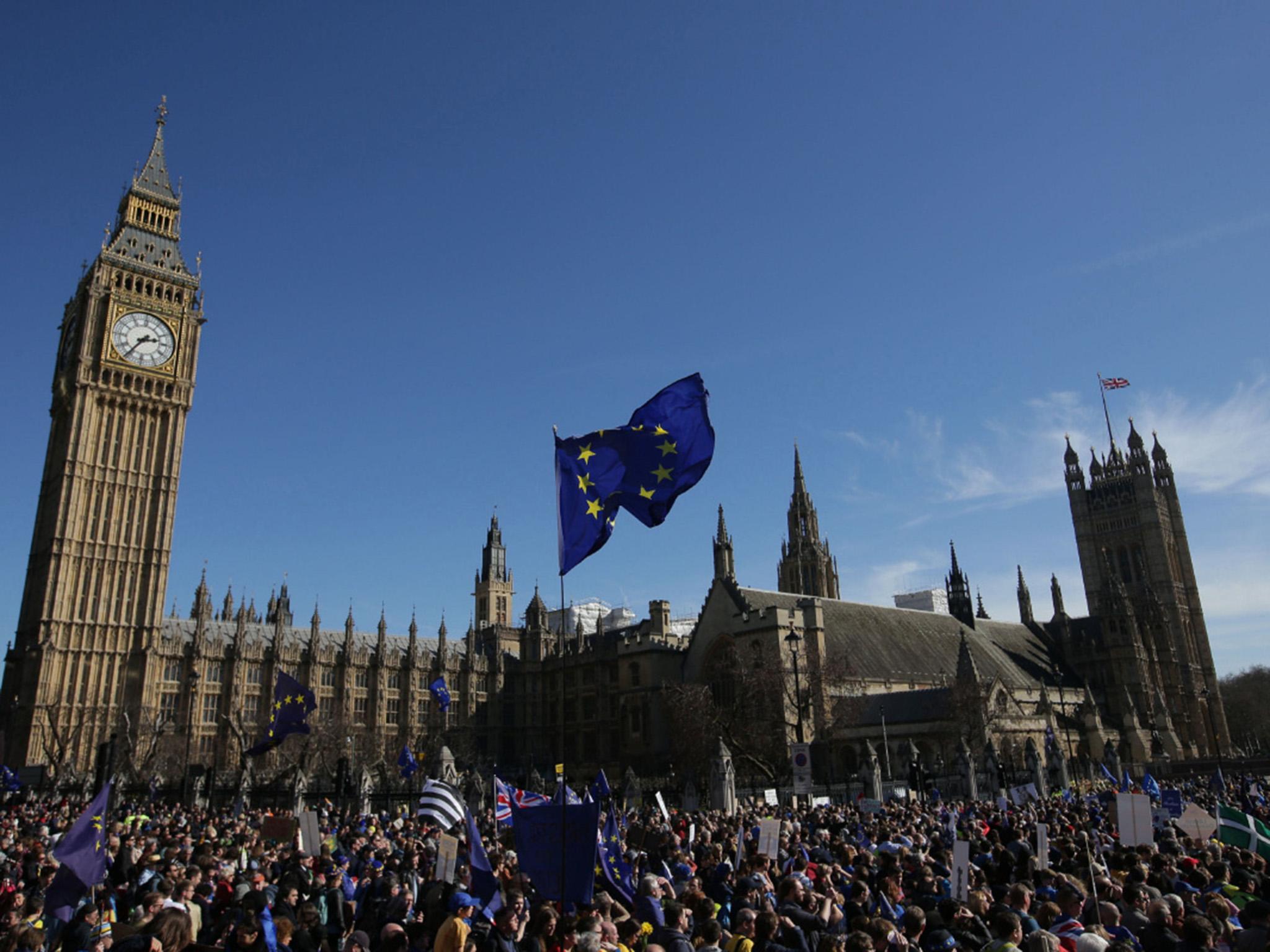Remain voters destroyed Tory majority by flocking to Labour as 'best bet' to stop a hard Brexit, finds study
EU withdrawal was the crucial issue on polling day – despite barely featuring during the election campaign, voters tell researchers

Your support helps us to tell the story
From reproductive rights to climate change to Big Tech, The Independent is on the ground when the story is developing. Whether it's investigating the financials of Elon Musk's pro-Trump PAC or producing our latest documentary, 'The A Word', which shines a light on the American women fighting for reproductive rights, we know how important it is to parse out the facts from the messaging.
At such a critical moment in US history, we need reporters on the ground. Your donation allows us to keep sending journalists to speak to both sides of the story.
The Independent is trusted by Americans across the entire political spectrum. And unlike many other quality news outlets, we choose not to lock Americans out of our reporting and analysis with paywalls. We believe quality journalism should be available to everyone, paid for by those who can afford it.
Your support makes all the difference.Remain voters destroyed the Conservatives’ majority by flocking to Labour as the “best bet” to stop a hard Brexit, a huge election study has found.
The research, from quizzing more than 30,000 voters, has concluded that EU withdrawal was the crucial issue on polling day – despite barely featuring during the election campaign.
And it has found that Jeremy Corbyn’s party was able to haul back Theresa May’s only by winning over “large numbers” of Remain backers from all other parties.
More than half of Brexit opponents in the 2016 referendum backed Labour in June, far more than voted for the Conservatives (25 per cent), or the pro-EU Liberal Democrats (15 per cent).
Significantly, more than one in three of respondents identified Brexit as the most important issue of the election – while fewer than one in 10 mentioned the NHS and only one in 20 the economy.
The findings come despite suggestions that issues other than Brexit explained Labour’s campaign surge, given the party’s confusing and ambiguous stance.
Labour refused to campaign to stay in either the EU single market or the customs union, its manifesto promising only “a strong emphasis on retaining the benefits”.
Since polling day, Mr Corbyn has insisted single market membership must end on Brexit day, although senior colleagues have suggested Labour backs staying in a “reformed” trading bloc.
One pro-EU Labour MP urged Mr Corbyn to embrace the study’s findings as the go-ahead to properly oppose the Government’s withdrawal plans.
“Remainers punished the Tories and removed May’s majority. Government should take note – and Labour should be bolder on opposing Brexit,” tweeted Neil Coyle, a London MP.
Academics from the British Election Study (BES) team said their data suggested Remain voters had swung to Labour because the debate had moved on from whether to leave, to the exit terms.
“Despite an ambiguous position on the single market, Labour was seen as the best bet for those wanting to keep closer ties with our European neighbours,” wrote Professor Ed Fieldhouse and Dr Chris Prosser of Manchester University.
“One of the reasons Labour could do so well amongst Remainers is that, by May 2017, the Brexit debate was not so much about whether or not to leave or remain, but about how to leave the EU.”
Respondents were also asked whether it was more important to protect Britain’s single market access or gain full control of immigration, during the Brexit talks.
The academics added: “The Conservatives lead Labour by more than 40 percentage points amongst those most in support of full control of immigration, with Labour having a similar lead among those wanting complete access to the single market.
“So to put it another way, the Tories were the party of hard Brexit whilst Labour was the party of soft Brexit.”
Furthermore, as the Ukip vote collapsed, more than half of the party’s 2015 voters who voted again switched to the Tories, compared with only 18 per cent to Labour and 18 per cent who stayed loyal.
“Undoubtedly, in 2017, the Conservatives were the party of Leave, with over 60 per cent of the Leave vote,” the academics concluded.
Join our commenting forum
Join thought-provoking conversations, follow other Independent readers and see their replies
Comments